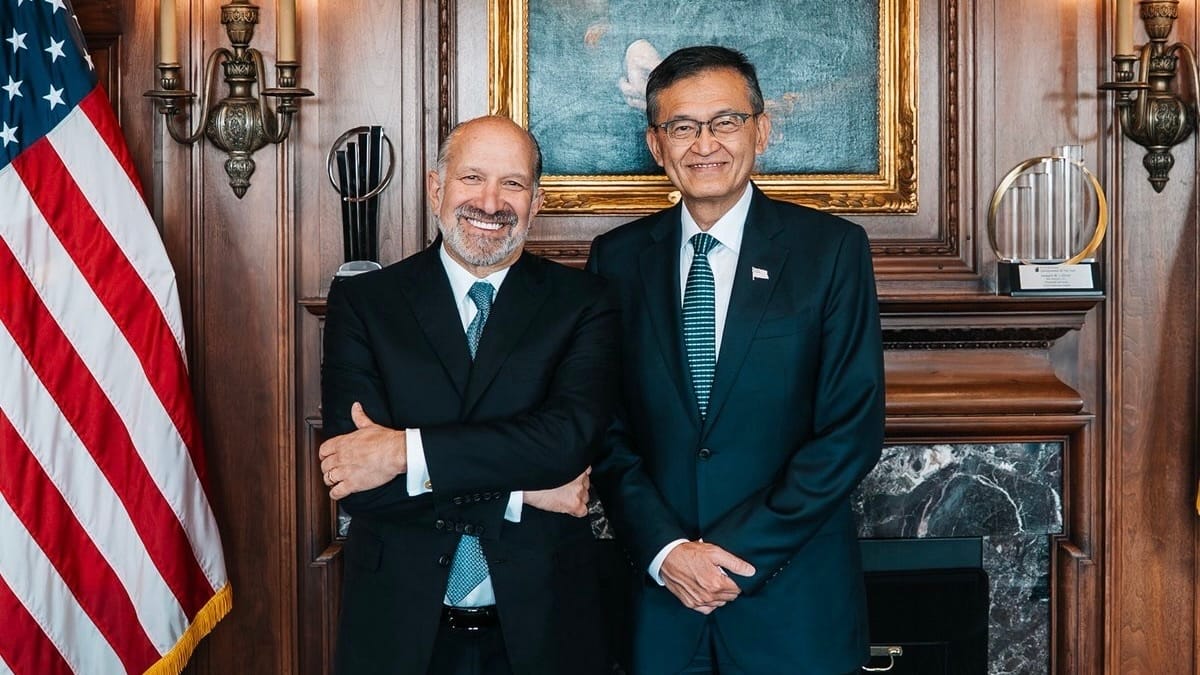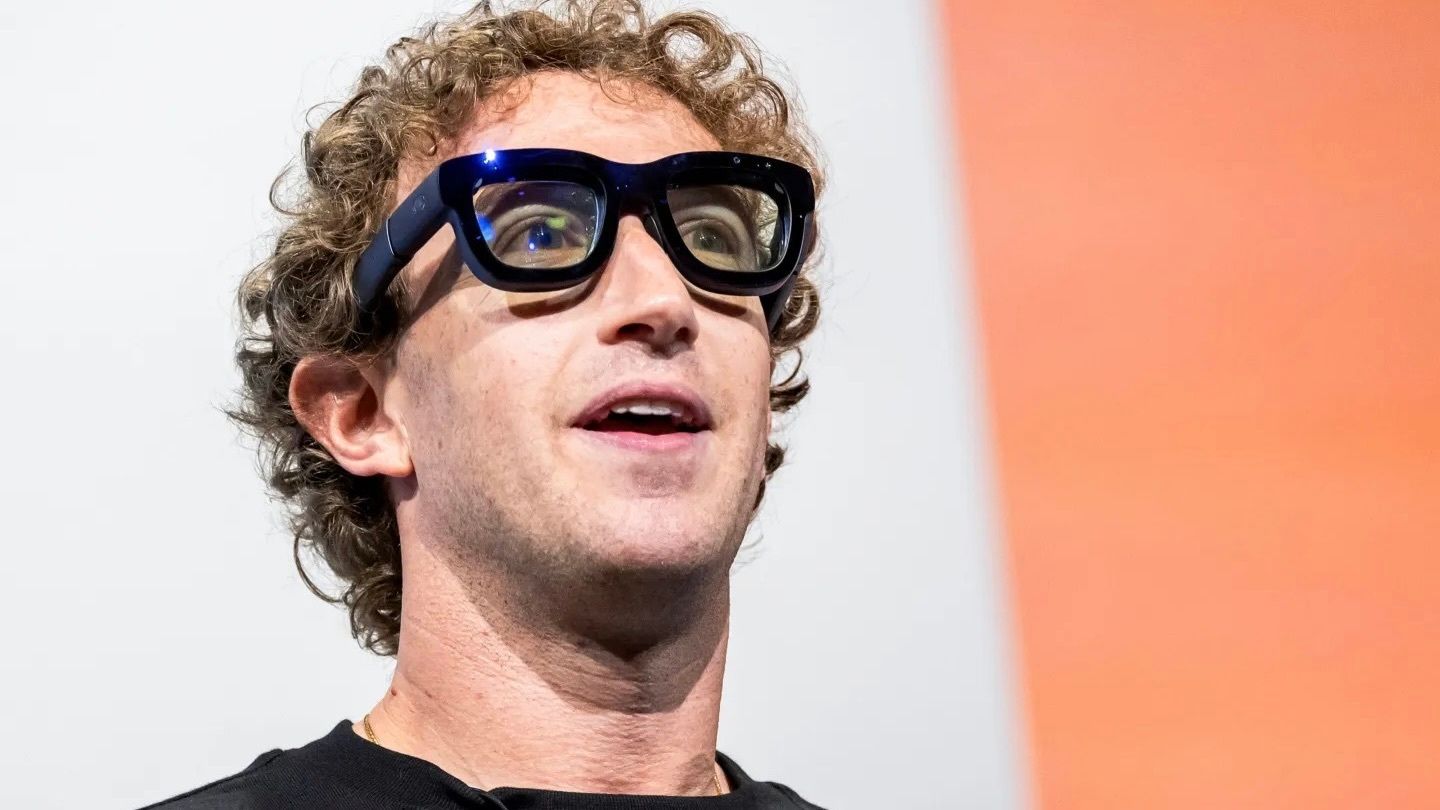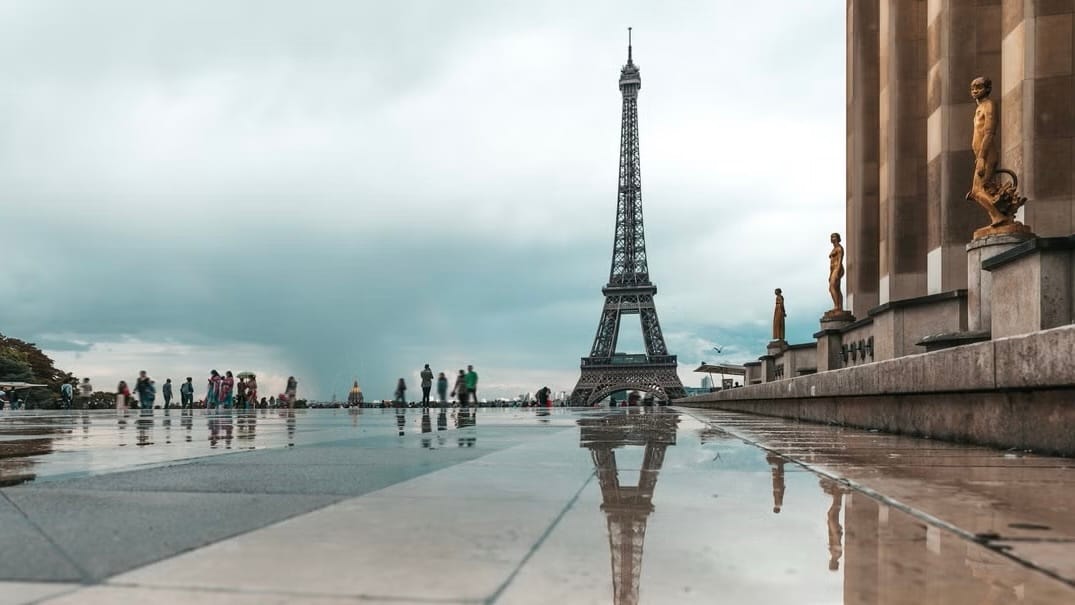- Increadible
- Posts
- Why the U.S. just bought Intel
Why the U.S. just bought Intel
Meta admits: it needs Midjourney. Musk sues Apple & OpenAI.

Good morning.
It’s Tuesday, August 26. Can you believe August is already packing its bags? Blink twice and it’ll be September, pumpkin cult season, and suddenly you’re buying cinnamon-scented trash bags at Target.
This newsletter is here for one thing only: to brighten your day and drag you away from the doom-and-gloom headlines. Think of it as your five-minute escape hatch from the circus of bad news.
So grab your coffee, pretend your inbox isn’t on fire, and enjoy the read.
Today’s stories:
Musk launches Macrohard to rival Microsoft
Apple plots foldables, curved glass iPhones
Musk sues Apple, OpenAI over monopoly
Meta rents AI creativity from Midjourney
Paris named world’s most stressful city
Pokémon theme park coming to Tokyo
Mortgage rates stuck near 6.6%
U.S. buys 10% stake in Intel
and more…

Wall Street slipped into the red Monday as investors braced for Nvidia’s earnings later this week. The Nasdaq dipped 0.22%, the S&P 500 slid 0.43%, and the Dow dropped 349 points. Nvidia briefly lifted the Nasdaq after its stock gained 1% on fresh analyst praise, but the momentum faded by the close.
Meanwhile, Intel shares got a boost after Commerce Secretary Howard Lutnick confirmed the U.S. government has taken a 10% stake in the company — part of what White House advisor Kevin Hassett described as the Trump administration’s broader plan to build a sovereign wealth fund.
_____
Uncle Sam Buys Into Intel
The U.S. government now owns 10% of Intel. Trump used leftover CHIPS Act funds and a few billion in other awards to scoop up nearly $9 billion worth of stock at a discount price, instantly flipping it into an $11 billion stake. Trump bragged on Truth Social that America “paid nothing” and called it a “great deal,” which is true if you forget taxpayers footed the bill in the first place. Intel gets cash, Washington gets equity, and Wall Street pushed the stock up 6% on Friday. Intel stressed that the government won’t sit on its board or meddle in management, but Washington now has warrants to buy another 5% if Intel spins off its foundry unit. Officially, it’s about “securing U.S. chipmaking.” Unofficially, it’s the government cosplaying as a hedge fund.
_____
Mortgage rates refuse to chill out. Mortgage rates are still hanging around 6.6% — basically unchanged, basically annoying. The 30-year fixed rate hasn’t moved much, except for bouncing up and down like a bad DJ set. Everyone thought rates would ease when the Fed started cutting last year, but no. They spiked, dipped, spiked again. At one point in 2021, you could lock a loan at 2.65%. That was the golden age. Forget it. Experts say those days are gone forever, unless another global disaster strikes. Right now, homebuyers are stuck with rates near 7% while inflation, tariffs, and random policy choices keep lenders nervous. Buyers desperate enough can shave a little off by negotiating “rate buydowns” with builders, or by maxing out credit scores and keeping debt-to-income ratios saintly. Otherwise, welcome to the new normal.
Musk sues Apple and OpenAI. Elon Musk’s AI startup xAI just sued Apple and OpenAI, accusing them of running an AI monopoly and blocking his apps from climbing the App Store charts. The lawsuit, filed in Texas, says Apple’s exclusive deal with OpenAI locks out rivals like xAI and Grok, and demands billions in damages. OpenAI called the move “Musk’s ongoing pattern of harassment.” Apple said nothing, probably because its lawyers were already drafting their own colorful responses. The case could become the first big legal fight to define what the “AI market” even is. Antitrust experts say Apple’s iPhone dominance might actually help Musk’s argument, though Apple will counter it’s just making business choices, not sabotaging him. Meanwhile, Musk keeps suing everyone — Apple in Texas, OpenAI and Sam Altman in California — while still weaving Grok into Tesla dashboards and posting memes about it on X.

Meta Rents a Brain From Midjourney
Meta signed a deal with Midjourney to license its AI image and video tech. Translation: Zuck’s own tools were mid, so he’s renting someone else’s imagination. Midjourney, founded in 2022, rakes in subscription money from people paying up to $120 a month to generate fantasy avatars and vaporwave dreamscapes. It’s already pulling in hundreds of millions in revenue without investors or outside funding. Meta tried to make its own toys like Imagine and Movie Gen, but they looked more like student projects. With Midjourney in the mix, Meta hopes to look less like a latecomer while competing with OpenAI’s Sora, Google’s Veo, and every other lab promising AI blockbusters. Meanwhile, Zuck keeps throwing $100M contracts at AI researchers and burning billions on acquisitions. Meta may not have originality, but it has cash.
_____
Musk tries to out-microsoft Microsoft. Elon Musk is back with another company, because apparently Twitter, rockets, and cars aren’t enough hobbies. His new toy is called Macrohard, a not-so-subtle jab at Microsoft. The plan: a “purely AI” software company where robots write the code, manage the workflow, and basically replace everyone except Elon. His chatbot Grok explained that Macrohard will spit out software tools like coding agents, image generators, and automation systems. It’s pitched as the anti-Microsoft, but with a name that sounds like a rejected Viagra brand.
Apple plots foldables and curvy glass by 2027. Apple finally remembered how to surprise people. Next month, it’s expected to drop the iPhone Air — a thinner, pricier, weaker-battery version for anyone bored of buying the same brick every year. Bloomberg says Apple actually has a three-year plan this time. In 2026, a foldable book-style iPhone is coming to join the late party Samsung’s been hosting for years. Then, in 2027, Apple plans to celebrate the iPhone’s 20th birthday with a curved-glass design that basically wraps the whole phone in screen. For now, the iPhone 17 lineup stays mostly boring, with a new Pixel-style camera bar as the only “innovation.” iPhone Air will carry the style points, but also the tradeoffs.

Former Zillow exec targets $1.3T
The top companies target big markets. Like Nvidia growing ~200% in 2024 on AI’s $214B tailwind. That’s why the same VCs behind Uber and Venmo also backed Pacaso. Created by a former Zillow exec, Pacaso’s co-ownership tech transforms a $1.3 trillion market. With $110M+ in gross profit to date, Pacaso just reserved the Nasdaq ticker PCSO.
Paid advertisement for Pacaso’s Regulation A offering. Read the offering circular at invest.pacaso.com. Reserving a ticker symbol is not a guarantee that the company will go public. Listing on the NASDAQ is subject to approvals.

Paris Tops Global Stress Index
Paris just got crowned the world’s most stressful city to visit. The “City of Love” is now the “City of Long Lines, Pickpockets, and Shoulder-to-Shoulder Eiffel Tower Selfies.” A study ranked 51 global destinations and Paris took the top spot thanks to insane tourist density — almost 50 million people crammed into a city smaller than Dallas. That makes it ten times more crowded than New York. Crime and weather weren’t even the biggest headaches. Paris’s mid-range humidity and fifth-place crime stats were tolerable compared to the sheer crush of tourists and endless queues at places like the Louvre. Infrastructure is bursting at the seams, metros are sardine cans, and pickpockets treat the crowds like an all-you-can-snatch buffet. Other stressful cities included Hanoi, with its sauna-level humidity, and Shanghai, with 300 million visitors a year. But Paris managed to top them all by being relentlessly congested. So yes, Paris is still beautiful — just bring patience, extra deodorant, and a death grip on your bag.
_____
Pokémon gets its own Disneyland in Tokyo. Japan is finally getting a permanent Pokémon theme park. PokéPark KANTO opens spring 2026 inside Tokyo’s Yomiuriland, turning nostalgia into a full-time business. The park will have two zones: Pokémon Forest for your wholesome nature vibes and Kayatsuri Town for the city grind, basically Pokémon GO but without the walking. It’s an upgrade from the temporary PokéParks Japan and Taiwan tried in the 2000s, now locked in as a tourist magnet for every millennial who still hums the theme song.
_____
TikTok of the day: watch here

Want to get the most out of ChatGPT?
ChatGPT is a superpower if you know how to use it correctly.
Discover how HubSpot's guide to AI can elevate both your productivity and creativity to get more things done.
Learn to automate tasks, enhance decision-making, and foster innovation with the power of AI.
What do you think about today's edition? |
We wanna be friends with your friends
Share Increadible Newsletter (increadible.com) with your friends and stay informed anxiety-free together








